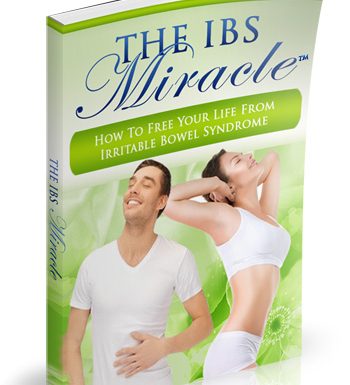Treatment for IBS (Irritable Bowel Syndrome) usually focuses on changes in diet and lifestyle, avoiding foods that trigger symptoms, and managing stress. Individuals with IBS need to feel actively involved in their treatment; taking control and feeling empowered are really vital as IBS can seem like such an unpredictable condition. Some foods and situations will nearly always cause symptoms while others don’t, and it can be incredibly frustrating trying to pin down what you can and can’t eat without suffering an attack.
Here are some pointers:
Dietary changes
Eliminate, reduce or avoid aggravating foods: With IBS there really is growing evidence that what goes into the mouth produces a reaction in the body, and that food is a really important factor.Some foods will nearly always cause symptoms while others don’t, and it can be incredibly frustrating trying to pin down what you can and can’t eat without suffering an attack. There sometimes seems to be no logic to it; far away from feeling empowered and in control. Dietary changes can be helpful for IBS patients, but no one specific diet is recommended because no two cases are alike. For more information about where to start with changing your diet please read on.
Exercise
Many people find that exercise helps to relieve IBS symptoms. Aim to do a minimum of 30 minutes of exercise a day, at least five times a week. The exercise should be strenuous enough to increase your heart and breathing rates. Walking briskly, walking up a hill, cycling or swimming can all be helpful. Exercise is also good for reducing stress.
Medication
Treatments for IBS are wide and varied and you may find help from medicines that your GP prescribes, or that you can obtain from your pharmacy. Overall though, self-management is the key and apart from help with optimising any medication, often it is left to the individual to find out what works best for them.
A number of different medications are used to help treat IBS for example:
• Antispasmodics; to help to reduce abdominal pain and cramping
• Laxatives; to help to treat the symptoms of constipation
• Anti-motility medicines; to help to treat the symptoms of diarrhoea

A low FODMAP diet could help you reduce IBS symptoms.
Probiotics
Some people find that taking probiotics regularly can help to relieve the symptoms of IBS. Probiotics are dietary supplements that product manufacturers claim can help improve digestive health. They contain “friendly bacteria” such as Lactobacillus and Bifobacteria, that supposedly outgrow your “bad bacteria”, helping to keep your gut and digestive system healthy. Probiotics can help to calm and regulate your bowels, but vary in their effectiveness. If after a month’s trial, one brand is not helpful, try another. Prebiotics can also be useful; these tend to be complex sugars that encourage the growth of your own natural probiotic bacteria. If you decide to try pre- or pro- biotics, make sure that you follow the manufacturer’s instructions and dose recommendations.
Reducing stress
Reducing the amount of stress in your life may help to reduce the frequency and severity of your IBS symptoms. Some ways which may help include:
• Relaxation techniques, such as meditation or breathing exercises
• Stress counselling
• Cognitive behavioural therapy (CBT)
• Hypnotherapy has been shown to be particularly useful
• Yoga or Tai Chi
• Acupuncture, reflexology or therapuatic massage
Self-management Tips
• Gradually learn how your lifestyle and diet can affect your symptoms
• Don’t try to do too much too soon
• Look upon your gut as your alarm signal – if it goes off, slow down, relax, don’t push through your symptoms, take a break
• Talk about your problems
• Identify your trigger foods with a test
• Work with your gut, not against it
• Think food and mood!
• Try and take time out for YOU.


Leave a Reply